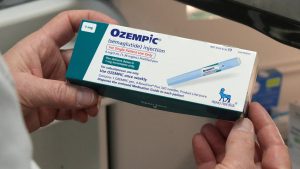What Cancer Patients Should Know About Diet, Supplements, and Hydration

The Importance of Nutrition During Cancer Treatment
Good nutrition for cancer patients is super important. It can affect how well someone handles treatment. Let’s look at why it matters so much.
It’s not just about eating; it’s about fueling the body. The right foods can make a big difference.
Nutrition plays a key role in helping patients feel their best.
Maintaining Strength and Energy Levels
Keeping up strength is a big deal during cancer treatment. Treatment can be tough, and it drains energy.
Eating well helps fight fatigue. It gives the body what it needs to keep going.
Think of food as fuel. The better the fuel, the better the body runs.
Managing Treatment Side Effects
Treatment can cause some nasty side effects. Nausea, loss of appetite, and mouth sores are common.
Nutrition for cancer patients can help manage these issues. Certain foods can ease nausea, while others are gentle on the mouth.
It’s all about finding what works and sticking with it.
Supporting Healing and Recovery
Good nutrition isn’t just for during treatment. It’s also key for healing afterward.
It helps rebuild tissues and restore energy. The body needs the right building blocks to recover.
Think of it as giving the body a head start. The better the nutrition, the faster the recovery.
Optimizing Protein Intake for Cancer Patients
Why Protein is Crucial During Treatment
Protein is super important during cancer treatment. It helps rebuild tissues. It also keeps your immune system strong.
Cancer and its treatments can increase your body’s need for protein. Not getting enough can lead to muscle loss. This can weaken you and slow down recovery.
Adequate protein intake is vital for maintaining strength and energy.
Excellent Sources of Dietary Protein
Good sources of protein are all around. Think lean meats, poultry, and fish. Eggs are also a great option.
Dairy products like yogurt and cheese pack a protein punch. Plant-based options include beans, lentils, and tofu. Nuts and seeds are also good choices.
Don’t forget protein powders and shakes. They can be helpful if you’re struggling to eat enough solid food.
Strategies for Increasing Protein Intake
Start by adding protein to every meal and snack. A handful of nuts or a hard-boiled egg can make a difference. Consider Greek yogurt with berries for breakfast.
If you’re having trouble eating, try smaller, more frequent meals. Blend smoothies with protein powder and fruit. This can make it easier to get the nutrients you need.
Talk to a registered dietitian. They can help you create a personalized plan to meet your protein needs. They can also offer tips for managing any side effects that make it hard to eat.
Staying Well-Hydrated Throughout Treatment
The Role of Hydration in Cancer Care
Hydration is super important during cancer treatment. It helps your body work right. It can also make treatment side effects less bad.
Staying hydrated helps protect your organs. It keeps them from getting damaged during treatment. Think of it as giving your body the water it needs to fight.
Staying hydrated is not just about drinking water; it’s about supporting your body’s ability to heal and cope with the demands of cancer treatment.
Recommended Daily Fluid Intake
How much should you drink? Most people need about 8 to 12 cups of fluids a day. This can change based on your treatment and health.
Listen to your body. If your urine is dark, you probably need more fluids. Aim for a pale yellow color.
Don’t just drink water. Soup, yogurt, and even some fruits can help you stay hydrated.
Creative Ways to Boost Hydration
Not a fan of plain water? Try adding fruit slices. Cucumber, lemon, or berries can make it taste better.
Make it a habit. Carry a water bottle with you. Refill it throughout the day.
Consider other drinks. Tea, juice, and even milk count. Just watch out for too much sugar.
Navigating Dietary Supplements and Cancer
Understanding Dietary Supplement Use
Many people turn to dietary supplements during cancer treatment, hoping to boost their health. It’s important to know what these supplements do. Are they safe and effective?
Some believe supplements can improve energy or reduce side effects. Others might think they can even help fight the cancer itself. But it’s not always that simple.
Before starting any dietary supplements, talk to your doctor. They can help you understand the potential benefits and risks.
Potential Interactions with Cancer Treatments
Supplements can sometimes interfere with cancer treatments. This is a serious concern.
Some supplements might make chemotherapy or radiation less effective. Others could increase the risk of side effects. It’s crucial to be aware of these possibilities.
Always inform your healthcare team about any supplements you’re taking. This includes vitamins, minerals, and herbal products. They need the full picture to provide the best care.
When Supplements May Be Recommended
Sometimes, supplements are needed during cancer treatment. This is usually to address specific nutrient deficiencies.
For example, someone with poor appetite might need a multivitamin. Or, a patient with bone loss might need calcium and vitamin D. These recommendations should come from a doctor or registered dietitian.
It’s best to get nutrients from food whenever possible. But in some cases, dietary supplements can play a helpful role.
Addressing Common Nutritional Challenges
Coping with Unintended Weight Loss
Unintended weight loss is a frequent issue for cancer patients. It can stem from the cancer itself or the side effects of treatment. Addressing this requires a proactive approach.
Prioritizing calorie-dense foods is key. Think healthy fats, nuts, seeds, and full-fat dairy if tolerated. Small, frequent meals can also be easier to manage than large ones.
Consider consulting a registered dietitian. They can help create a personalized plan to meet individual needs and preferences. They can also help with addressing any underlying issues contributing to weight loss.
Strategies for Difficulty Eating
Cancer treatment can sometimes make eating a chore. Nausea, taste changes, and mouth sores are common culprits. But there are ways to make it easier.
Experiment with different textures and temperatures. Some people find that cold or room-temperature foods are easier to tolerate. Also, try bland foods if strong flavors are off-putting.
Consider using nutritional supplement drinks. These can provide essential nutrients when solid food is difficult to consume. Don’t hesitate to ask your doctor about anti-nausea medication if needed.
Utilizing Tube Feeding Resources
In some cases, cancer patients may struggle to get enough nutrition through regular eating. Tube feeding, also known as enteral nutrition, might be necessary. It’s a way to deliver nutrients directly to the stomach or small intestine.
Tube feeding can be temporary or long-term, depending on the situation. It’s important to have a thorough discussion with your healthcare team. They can explain the benefits and risks.
There are different types of feeding tubes and formulas available. The healthcare team will help determine the best option for each patient. They will also provide education and support on how to manage tube feeding at home.
Tube feeding can be a daunting prospect, but it can be a life-saving intervention. It’s important to remember that it’s not a sign of failure, but rather a way to ensure that the body gets the nutrients it needs to fight cancer.
Building a Balanced Diet for Cancer Patients
Emphasizing Plant-Based Foods
Plant-based foods are key. Think fruits, veggies, whole grains, and legumes. These foods provide essential nutrients and fiber.
They also contain phytochemicals. These compounds may help protect against cancer.
Fill most of your plate with these nutritious options.
Incorporating Essential Vitamins and Minerals
Vitamins and minerals are vital for overall health. A balanced diet should provide most of what you need. Don’t underestimate the power of a balanced diet.
Consider vitamins A, C, D, and E. Also, think about minerals like zinc, calcium, and selenium.
Getting enough vitamins and minerals can be tough during cancer treatment. Talk to your doctor about your specific needs.
The Benefits of a Varied Diet
A varied diet is crucial. It ensures you get a wide range of nutrients. This supports your body during treatment.
Try new recipes and foods. This keeps meals interesting and nutritious.
Don’t be afraid to experiment with different flavors and textures. A balanced diet is a happy diet.
Special Considerations for Radiation Therapy
Nutritional Needs During Radiation
Radiation therapy can really take a toll on the body. It’s super important to adjust your diet to support healing. Think of food as medicine during this time.
Focus on foods that are easy to digest. This helps your body absorb nutrients without extra stress.
Prioritize protein and calories to maintain your weight and energy.
Avoiding Antioxidant Supplements During Radiation
It’s generally a good idea to hold off on antioxidant supplements during radiation therapy. There’s some thought that they might protect cancer cells, which is the opposite of what you want.
Always chat with your doctor before taking anything new. They can give you the best advice based on your specific situation.
It’s best to get your vitamins and minerals from food. If you have a deficiency, your doctor can recommend a specific supplement.
Managing Dry Mouth and Other Side Effects
Dry mouth is a common side effect of radiation therapy, especially if you’re getting treatment in the head or neck area. It can make eating really uncomfortable.
Sipping water throughout the day helps. Also, try sugar-free candies or gum to stimulate saliva production.
Consider these points:
- Eat soft, moist foods.
- Avoid spicy or acidic foods.
- Use sauces and gravies to add moisture.
Conclusion
So, what’s the takeaway here? For cancer patients, paying attention to what you eat and drink, and being smart about supplements, really matters. It’s not just about getting through treatment; it’s about feeling as good as possible while you do it. Eating a balanced diet, staying hydrated, and talking to your care team about any supplements you’re thinking of taking can make a real difference. Every person is different, and what works for one might not work for another. That’s why getting advice from doctors and dietitians is so important. They can help you figure out the best plan for your own situation, making sure you get the right support for your body during this time.



